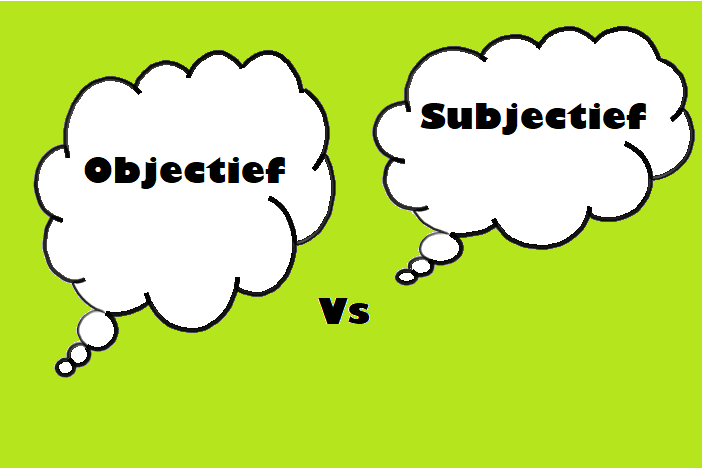Blog article describing the difference between the two.
Subjective vs Objective: Knowing the difference between Objective and Subjective is important as you start to make your posts more formal in your blog. This article will help you to figure out what each one means, so that you can make sure that you’re using them correctly!
Objective vs. Subjective
When it comes to writing, there are two different approaches that you can take: objective or subjective. But what’s the difference between the two?
Objective writing is based on facts and evidence, and it doesn’t include the writer’s personal opinions or feelings. Subjective writing, on the other hand, is based on the writer’s own opinions and feelings.
So, which approach should you take? It depends on your purpose for writing. If you’re writing an essay for a class, you’ll likely need to take the objective approach. But if you’re writing a blog post or opinion piece, you can take the subjective approach.
Here are some tips to help you remember the difference between objective and subjective writing:
If you want to write objectively, focus on presenting facts and evidence. Avoid using first person pronouns like “I” or “we.” And be sure to back up your claims with sources that are credible and trustworthy.
If you want to write subjectively, feel free to share your own opinions and feelings. Use first person pronouns if you wish. And don’t worry about backing up your claims with sources; your readers will understand that this is your opinion and not necessarily fact.
When is it Appropriate to Use Subjective and When is it Appropriate to Use Objective?
Subjective information or opinions are based on someone’s personal feelings, experiences, or beliefs. Objective information is not influenced by personal feelings or opinions and is based on facts.
It is appropriate to use subjective when you are writing about your own experiences, feelings, or beliefs. It is appropriate to use objective when you are writing about factual information that is not influenced by your own personal feelings or opinions.
Why are Subjective and Objective Important?
Subjective and objective Objectief En Subjectief are important because they help us to understand and communicate our ideas and experiences.
Subjective information is based on our personal opinions, feelings, or beliefs. It can be difficult to communicate this type of information accurately because it is often influenced by our biases. However, subjective information can be very helpful in understanding another person’s perspective.
Objective information is based on facts or data. It is often more accurate than subjective information, but it can be harder to obtain. Objective information is important because it can help us make better decisions.
How Does the Importance of Objectivity Affect the Media?
The media is often criticized for being too biased or opinionated. While it is true that the media does have a responsibility to report the news objectively, there are times when subjective reporting is necessary.
Subjective vs. Objective: What’s the Difference?
The importance of objectivity in the media has been debated for many years. Some people believe that the media should be unbiased and report only the facts, while others believe that there is a place for subjective reporting. So, what’s the difference between these two types of reporting?
Objective reporting is defined as “a style of journalism that emphasizes facts and avoids opinion or bias.”1 In other words, objective reporters present both sides of a story and allow readers to make their own judgments. Subjective reporting, on the other hand, “is a style of journalism that relies on opinions and personal interpretations.”2 In other words, subjective reporters offer their own opinions and interpretation of events.
So, which type of reporting is better? That depends on who you ask. Some people believe that objective reporting is necessary to ensure that the public receives accurate information. Others believe that subjective reporting is more honest and allows readers to better understand complex issues. Ultimately, it is up to each individual reader to decide what type of reporting they prefer.
Conclusion:
It’s important to understand the difference between subjective and objective writing, so that you can produce the most effective writing for your audience. In general, objective writing is more factual and informative, while subjective writing is more expressive and emotional. However, there are times when you might want to mix these two styles together to create a more persuasive or impactful piece of writing. Understanding how to use both subjective and objective language effectively will help you become a better writer overall.

